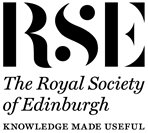We are hosting a Workshop on “Behavioural Public Policy and Participatory Governance” that will take place in Dublin, Ireland on June 05/06, 2023. We are thankful for funding from the Royal Society of Edinburgh.
In-person registration: Please click here if you would like to join us in person.
Logistics: The workshop will be free of charge and we will cover catering, venue, and dinner for the speakers. You will need to make your own travel and accommodation arrangements. We plan to meet on Monday the 5th (the bank holiday) for lunch and finish on Tuesday the 6th by 5pm. Remote participation on Zoom is also possible using this link.
Behavioural Public Policy and Participatory Governance
The aim of the workshop is to bring together researchers working on behavioural public policy and participatory governance. The use of behavioural insights to change people’s behaviours has become widespread in governments all over the world. However, behavioural interventions such as nudges have also been criticised for being paternalistic and being designed “top-down”. Meanwhile, participatory governance approaches are being developed in other strands of the policy literature (e.g., in well-being and sustainability) that encourage “bottom-up” policymaking through, for example, citizen assemblies, citizen juries, and deliberative mini-publics. Those approaches haven’t made their way into the behavioural policy discourse yet. This workshop aims to discuss possibilities and limitations of bottom-up approaches to behavioural public policy making. While grounded in philosophical perspectives, the workshop will focus on applied public policy that can be of direct influence to behavioural public policy.
Preliminary Schedule (subject to change)
Monday, June 05
12:00 – 13:00: Light Lunch
13:00 – 13:15: Welcome and introduction
13:15 – 14:00: Alice Moseley (Exeter) on “Signalling to the citizenry? Citizens’ assemblies as a heuristic device to wider publics”
14:00 – 14:45: Mark Fabian (Warwick) on “Democratising measurement: or Why thick concepts call for coproduction”
14:45 – 15:15: Coffee/Tea
15:15 – 16:00: Guilhem Lecouteux (Nice) on “The view from manywhere: a case study on health prevention among students
16.00 – 16:45: Liam Delaney (LSE) on “Behavioural Science Expertise: Trust and public legitimacy”
16:45 – 17:30: Gigi Foster (UNSW) on “Can participatory democracy work in Australia? Cultural realities and lessons from Covid”
Tuesday, June 06
09:30 – 10:00: Welcome coffee
10:00 – 10:45: Sanchayan Banerjee (VU Amsterdam) on “Behavioural Agency Framework”
10:45 – 11:30: Paul Frijters (LSE) on “How can the citizens regain their voice? Institutional re-design principles and proposals”
11:30 – 12:15: Malte Dold (Pomona) and Nathanael Colin-Jaeger (Fribourg) on “The role of public deliberation in agency-centric BPP”
12:15 – 13:15: Lunch
13:15 – 14:00: Miriam Victoria Fernandez Lins (UCD) on “Nudge and/or Co-design? A systematic review on applications of both approaches in environmental projects”
14:00 – 14:45: Liz Richardson (Manchester) on “Family resemblances and sibling rivalry? Reflections on why behavioural insights, co-design, and participatory governance should get on, but often don’t”
14:45 – 15:15: Coffee/Tea
15:15 – 16:00: Hannah Absalom (TAROE Trust) on “Feeling at Home’: a report on researching with social housing tenants the utility of emotional insights in social housing work”
16.00 – 16:45: Finbarr Brereton and Emma Fletcher-Barnes (UCD) on “Deliberating in Dublin: An examination of the structure and methodology of a deliberative mini public as a qualitative research exercise”
16:45 – 17:30: Discussion hosted by Leonhard Lades (UCD)
Participation: If you are interested in this topic, please get in touch with the organisers (see their emails below). If you would like to present your work on the topic, please share some details about your work (e.g., a title and an abstract) in an email to the organisers.
We are also exploring opportunities to organise a special issue on the workshop’s topic. When sending the details of your work, please let us know if this was of interest to you.
This will be a hybrid event and all participants (including the speakers) can join either remotely on Zoom or (preferably) in-person in Dublin.
Best wishes from the organisers,
Malte Dold (Malte.Dold@pomona.edu), Mark Fabian (mark.otto.fabian@gmail.com), and Leonhard Lades (leonhard.lades@ucd.ie).

